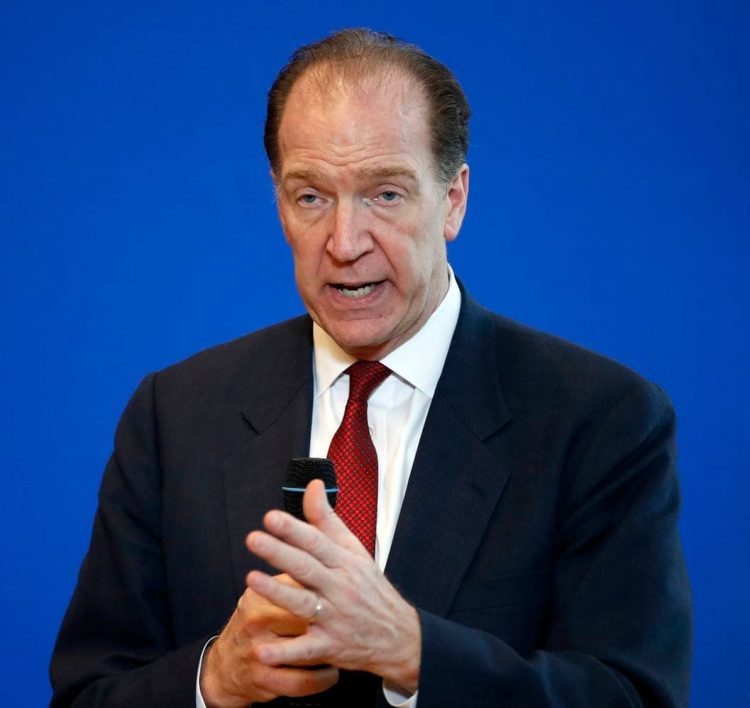The World Bank has unveiled plans to lend $50 billion or grant concessional credit to help provide large net positive flows to the poorest and most fragile countries and people by 2021.
World Bank Group President David Malpass disclosed this yesterday at the G20 Finance Ministers and Central Bank Governors Meeting at the ongoing IMF/ World Bank virtual annual meetings in US. He said the bank’s economic and poverty data show that desperate inequality is being caused by the COVID pandemic and economic shutdowns.
“The recession in advanced economies is less severe than had been feared, but in most developing economies, it has become a depression, especially for the poorest. Extreme poverty may rise by 150 million by 2021.
International Monetary Fund Managing Director, Kristalina Georgieva said that nine months into the pandemic, the world is still struggling with the darkness of a crisis that has taken more than a million lives, and driven the economy into reverse, causing sharply higher unemployment, rising poverty, and the risk of ‘a lost generation’ in low-income countries.
- Read also:
- FirstBank Appoints Muoyo As Non-Executive Director
- DPR Mulls 40b Barrels Oil Reserve By 2025
- FBN Holdings Committed To Nation Building – CR&S
Soon after our Spring meetings, we were able to launch health emergency programs in 111 countries and begin a surge in our grants and highly concessional lending that will reach the limits of our capital structure and commitment authority,” he said.
Malpass disclosed that in March, the G20 endorsed a vital debt relief program for the poorest countries, giving people a ray of hope. The DSSI helped increase fiscal resources for over 40 countries and created more transparency on the overwhelming debt burden. This week, the bank also published more granular data on debtors and creditors which will help identify problems and work toward sustainability.
“Our goals for debt relief in the Spring meetings were clear – fiscal savings for the poorest countries, greater debt transparency, and a path forward for countries in debt distress. We’re making progress but not nearly enough. The Debt Service Suspension Initiative (DSSI) extension being agreed today is welcome, and the term sheet has been strengthened in important ways.
However, some core DSSI-related problems are still unresolved, notably a lack of participation by private creditors and incomplete participation by some official bilateral creditors.
Malpass said the tendency in past debt crises is for countries in debt distress to go through a series of ineffective debt res-chedulings that leaves them weaker. Creditors may eventually allow them to get to a debt reduction process, but at a tremendous cost to the poor. We need to work better and faster this time.
H e said that given the urgency of the debt crisis, the IMF and World Bank have proposed that they undertake a joint action plan on debt reduction for the most indebted International Development Association (IDA) countries.
“Our Board approved a package of up to $12 billion to expand our fast-track COVID response for the purchase and distribution of COVID-19 vaccines, tests and treatments.
The scale of the challenges ahead is staggering, so we need to do more. With the strong support of its shareholders, IDA has front-loaded IDA-19 resources to the fullest possible extent as a key part of the surge in our commitments this fiscal year,” he added.



